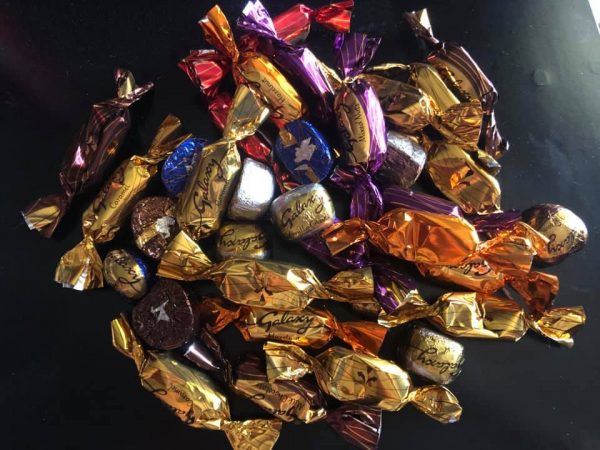Day 37: May 2, 2020
Global cases: 3,481,489; Deaths: 244,663
Egypt cases: 6,193; Deaths: 415
Ahmed Hossam Refai
Adjunct Professor of Music
It’s 11 pm, and I realize as I crumple another wrapper that nothing should ever taste as good as chocolate. There’s something fundamentally “unnatural” about how good it tastes. I’ve been eating a lot of chocolate. I’ve also been re-living the same day for countless days now.
This is a little like being in prison, I can imagine, as tired as that analogy might be. And of course, it’s a prison where my every need and craving is fulfilled – but even a fully furnished jail cell eventually becomes just a jail cell. It’s a physical space, enforced confinement, and you might die if you try to leave.
I’m incredibly grateful for my jail cell; it is safe, clean, and comfortable. in it I’m surrounded by family – people whom I know would be the last to stop caring, no matter who I become, or am revealed to be: unconditional support.
I grieve for the people who lack support, people who are alone, and those who were struck head-on by the impossibly latent schizophrenia of ‘it all’ when the levers were pulled and the gears came to a halt.
The great halt, the nothingness that will shape everything to come.
Every movie screenwriter right now is pursuing this: “In this film, two lovers are separated under a strict quarantine.” That is what’s coming. It is what now rolls on the conveyor belts of the entertainment industrial complex, potential reality. Of course, it is only when the entertainment-messaging is actualized and consumed that people will create sufficient meaning that they could then mythologize their experiences. make sense of things, make them real.
Now, those who are not directly affected are just frozen in time, living the same day for days. Eating chocolate, at best. Uncertain. At worst, catatonic.
So here I am, it’s past midnight and I’m uncertain. Uncertainty is the greatest, most easily exploitable resource. There’s comfort in the idea of collective uncertainty; there is perceived sincerity. Sincerity sells. Every other f@&_ing piece of ‘content’ is very convincingly selling me empathy, and I need it.
Days and weeks gone, it’s 3am and if I hear that damned Ahmed Helmy ad one more time, I’m going to break something. It’s Ramadan, and the general climate has shifted, seemingly overnight.
3ady, nothing has truly changed, the same anxieties and uncertainties linger unspoken on the fringes of conversation, now often too tedious to be revisited. The fear hasn’t been replaced, it has merely been double-exposed.
3ady. Ramadan Kareem.
My capacity for consuming news and social media is nearing its threshold; disoriented or disassociated? Must be somewhere in the middle. There has been an abrupt, calculated shift in the kind of messaging disseminated in media, the new buzzword: reopening. Nothing has truly changed, the situation is just as likely to become agonizingly grim.
“But what about the ECONOMY?” you say, barely intelligible as you pull out the size 14 boot lodged firmly in your esophagus. I’m too tired to make a case for the value of human life over that of the market.
For The Caravan‘s previous diary entries in Arabic and English go to our COVID-19 Special Coverage page.
It’s very difficult to come to terms with the possibility that people would soon have to make a decision between their livelihood and their lives. There’s immense uncertainty over whether reopening measures are safe (“enough??”) considering that the few thousand cases of infection to date are not enough to create herd immunity.
People just respond in whichever direction the state orders and institutional information point to. Just a few weeks ago, even the most skeptical and non-conforming people I know shared the sense in which following the “rules” adequately would keep the infection at bay. Now, and with no real rationale, that sentiment is becoming obsolete, even though nothing has truly changed.
Forgive me if this is too bleak, I don’t mean to bring you down, half of it was written before i knew anyone would read it. The takeaway is that we’re all powerless together, and maybe there is comfort in that. Maybe a sense of oneness, of ‘connectedness’ to each other, but also a sense of our assured submission to nature, and our own mortality.
There are lessons there, I think.

